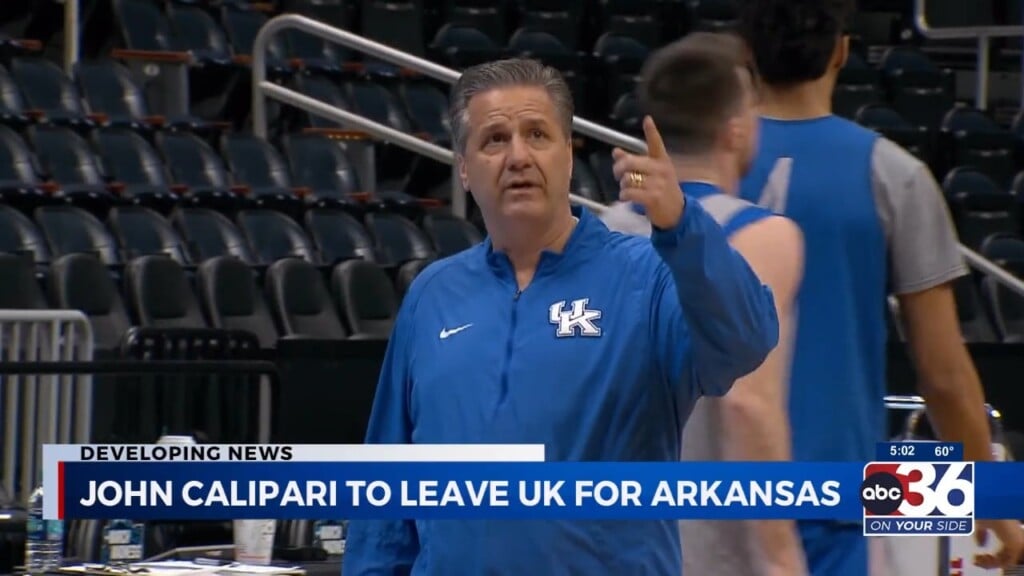UPDATE: Senate passes its version of budget
FRANKFORT, Ky. (AP/WTVQ) – The Kentucky Senate has passed its version of a two-year state spending plan, in what amounts to another step in the process to get a new state budget.
The Republican-led chamber voted 26-11 after a long debate Tuesday to pass its spending proposal.
That sets up the next phase of the budget debate, when conferees from the House and Senate will work in the coming days to iron out differences between the chambers’ spending plans.
The following is a prepared statement sent out by the Kentucky Education Association (KEA) in response to the Senate budget:
The proposed budget bill introduced in the state Senate this afternoon has some positives, but unfortunately, those are seriously outweighed by the negatives.
On the plus side, the Senate proposal includes additional funding for 14 school districts in Eastern Kentucky that are facing serious financial challenges due to the loss of unmined mineral property tax receipts. It also sweeps less money from the Kentucky Employees’ Health Plan (KEHP) than did the House.
But there’s more to be concerned about than to celebrate. If passed in its current form, the Senate budget would force school districts across Kentucky to make dramatic cuts that would severely inhibit their ability to provide students with the quality education they deserve, and ultimately leave Kentucky children struggling to get ahead.
“Kentucky students deserve a quality education that prepares them for our 21st century workforce. The Senate’s budget simply does not fund that basic aspiration,” said Kentucky Education Association President Stephanie Winkler. “We cannot provide a quality education without adequate funding. The House proposal included additional revenue; the Senate proposal does not. We urge legislators, and the Governor, to go back to the drawing board and establish new revenue options to support a budget that truly gives Kentucky students the opportunity to succeed.
This version of the budget cuts basic education services to students that need them most. It reduces preschool funding by 6.25% compared to the House budget. It reduces overall SEEK core funding by almost $153 million as compared to the House budget. And it provides no program funding for student textbooks, professional development or the Kentucky Teacher Internship Program (KTIP), among other things.
Furthermore, the Senate slashes funding to the Teachers’ Retirement System by $598 million in 2019 and $506 million in 2020, as compared to the recommendations of both the Governor and the House. This decision to cut over $1 billion in funding over the next biennium is particularly galling because the money doesn’t seem to have gone to education elsewhere in the budget. After months of warning that fully funding the public pension systems will overly burden the Commonwealth and require draconian cuts elsewhere in the budget, we find it curious that even after taking $1 billion from pension funding, the Senate couldn’t find a way to do more for SEEK, preschool or textbooks.
The Senate budget bill was released this morning at 11:00. Five hours later it was on the Senate floor for a vote without any time for the public to review and comment. Once it passes the Senate, it will go to conference committee, where yet another version of the budget will be hashed out behind closed doors with little or no input from the constituents who will be directly affected by it for the next two years. This is not good government.
The Senate can say that education is important, and that students should have quality teachers in their classrooms. They can say they respect and value educators. But actions speak louder than words. Governments budget for what they deem important. The Senate’s budget speaks for itself.
This is the statement released by the Kentucky Government Retirees:
As Kentucky Retirement Systems stakeholders, our top priority for this legislative session was to secure the full employer contribution for our pension plans. We are gratified that all three versions of the budget bill provide the full actuarially required contribution. Meanwhile, in the waning days of the session, it is vitally important that legislators examine revenue options that will help address the state’s many critical needs.




Leave a Reply